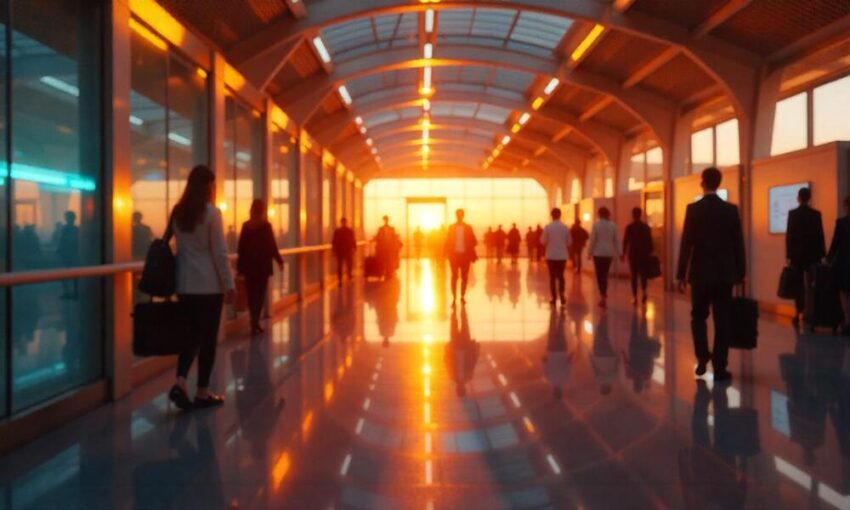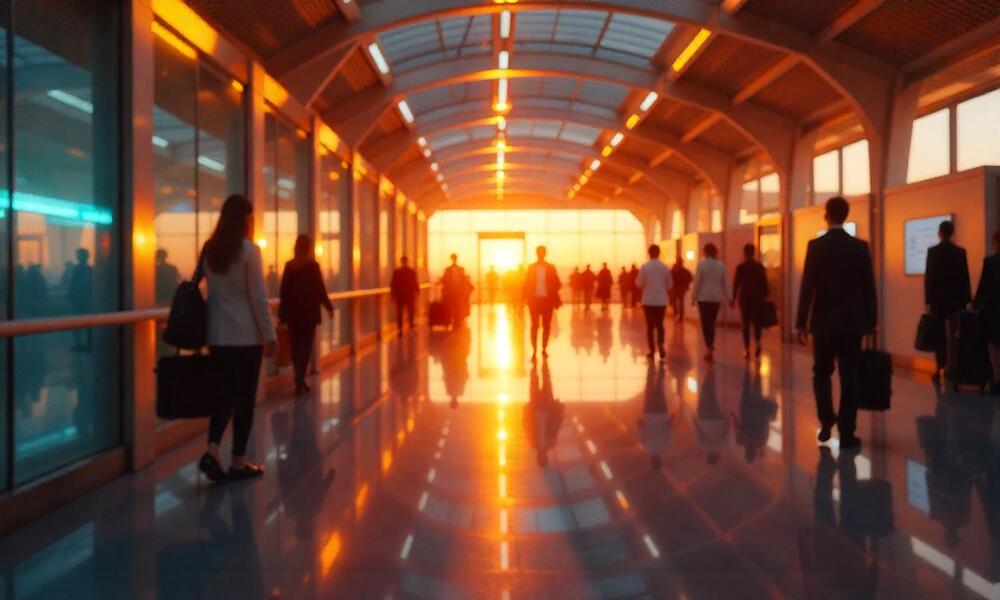Sunday, June 8, 2025

India has revolutionized global travel with new digital systems, transforming traditional boundaries into a seamless, technology-driven experience powered by artificial intelligence and biometrics.
Modern technology is transforming the global travel experience by proposing greater ease and efficiency. Innovations such as biovalidation, AI-powered security systems and digital travel documents are reshaping programs at airports and border checkpoints. These technology-driven upgrades provide travelers with more consistency and control during travel, which is especially valuable for those who are starting an international trip for the first time.
The concept of crossing international boundaries is undergoing a profound transformation – no longer characterized by long-line and ink stamps, but through digital scanning, automated systems and frictionless transitions. Technology is more than just perfecting travel procedures; it is reshaping the framework for global mobility. The transition from physical paperwork to digital platforms doesn’t just mean operational efficiency, it reflects how authorities and travelers view a broader shift in the journey: as seamless from start to finish, with a technological experience.
What drives this evolution is that the integration of advanced technologies uses harmony as a way to eliminate traditional obstacles. Biometric systems from facial recognition to fingerprint and iris scanning have become the standard for visa application centers and border control stations around the world. At leading international airports such as Frankfurt, Singapore and Dubai, passengers can now completely bypass manual inspections. The innovation has also gained appeal in India, with biometric electronic gates introduced by major hubs such as India, Delhi and Mumbai through the Fast Immigration-Trust Traveler Program (FTI-TTP), which significantly improves the efficiency of arrival and departure and ease of efficiency.
Indian nationals and Overseas Citizens of India (OCI) cardholders can now use biometric electronics to pass through immigration effortlessly, eliminating the need to interact face to face with border officials. This marks a significant advancement in the journey of completely contactless international travel. Globally, more than three-quarters of air travelers are willing to share their biometric information to improve the efficiency of airport procedures, according to IATA’s 2023 Traveler Insights Report 2023. The International Air Transport Association also stressed that supporting biometric boarding and processing can reduce waiting time at airports by about 40%.
For many travelers, feeling safe and informed is just as important (if not more). As global travel becomes increasingly digital, consistency and confidence have become fundamental expectations. Innovative tools such as real-time visa status updates, transparent appointment schedules, and app progress trackers are revolutionizing the way travelers interact with immigration systems. These digital features give applicants, especially those who come from small towns or first-time adventures, by providing clarity, convenience, and a stronger sense of control over the process.
This authorization continues to go beyond the visa application stage and extends to immigration checkpoints. Behind the scenes, AI is reshaping border operations to enable real-time risk detection, anomaly tracking and traveler analysis. These intelligent systems enable border authorities to make faster and more informed decisions, balancing safety with traveler comfort. With the global tourism industry recovering and developing the pandemic, this multi-layered approach to smart border management is becoming a new norm – enhancing security and overall travel experience.
With the development of travel technology, the same is true for the need for ethical supervision. Building trust in this digital age depends on trust responsible for using artificial intelligence – maintaining transparency, protecting personal data and maintaining human participation in decision-making processes. Clear and fair AI governance is no longer optional; earning and retaining traveler confidence is crucial.
Meanwhile, technologies like blockchain are beginning to reshape the foundations of secure travel. Although still in its early stages, blockchain has shown great hope, especially in protecting sensitive information such as vaccination records and visa history. By making the defense resistant and immediately verified, blockchain adds a built-in layer of trust to digital systems and provides guarantees that personal records are accurate and protected from manipulation.
Digital Travel Certificates (DTC) have also emerged as game-changing developments. Activities like an ID from IATA are paving the way for the future where travelers can safely store identity documents and travel records in encrypted mobile wallets, simplifying cross-border movements and reducing the need for duplicate identity checks.
Technology-oriented external service providers such as VFS Global bring these global innovations closer to Indian travelers. VFS Global operates in over 158 countries and redefines the multi-million-dollar visa application experience by making it more approachable and traveler-centric. Whether it’s through biometric enrollment, an intuitive online interface or multilingual support, the organization can all alleviate the complexity of international travel. Their efforts are a strong commitment to transparency, continuous innovation and put the needs of travelers at the heart of every solution.
India is rapidly adopting digital innovation to transform the travel experience both domestically and internationally. Programs such as Digiyatra for internal flights and Fast Track Immigration – Trusted Traveler Program (FTI-TTP) are redefining how passengers enter from the airport to border clearance. These advances, combined with technology-driven services such as digital service desks and multilingual support in regional languages, make air travel easier to access, even for first-time flyers from smaller cities and towns. The rising interest in international journeys is clear: In 2023 alone, nearly 28.2 million Indian citizens are taking risks abroad, highlighting the growing demand for global exploration.
Technology is not acting as a barrier, but increasingly serves as a connector for today’s travel landscapes. Once a series of disconnected manual streaming sequences are unifying for a simplified end-to-end experience – thanks to innovations like AI-powered security systems, faster digital signatures, and mobile applications designed to simplify every step of the journey. Paradoxically, with more technical workloads of automation, the traveler experience becomes increasingly seamless, intuitive and personal.
This digital evolution has profound implications for Indian travelers, especially. International travel is no longer a distant dream or luxury, it is becoming a reality, reliable and empowering more people with possibilities. In this new era, not a paper visa or boarding pass that defines the journey, but a safe digital footprint left by travelers – a door that can open up on the boundaries and set the stage for whatever comes next.








